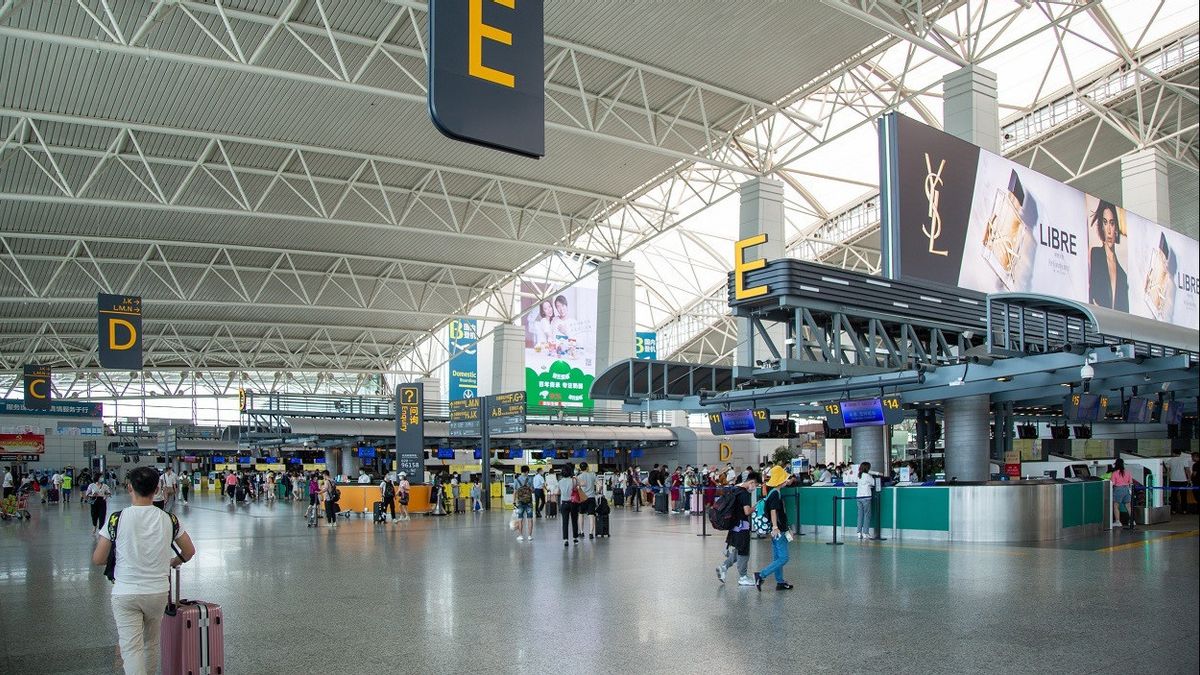JAKARTA - Chinese authorities have decided to extend the visa-free transit period to attract more foreign tourists.
The State Immigration Administration announced that the Bamboo Curtain Country would extend the visa-free stopover period to 240 hours (10 days) as a whole.
Previously, there were two levels, which allowed eligible tourists to visit for 72 hours (3 days) or 144 hours (6 days) depending on the purpose, quoted from CNN December 20.
The transit program, a popular "trik" for foreign tourists who want to visit China but feel the visa process is too complicated or burdensome, allowing visitors who have booked a plane ticket from China to a third country or region to get a visa upon arrival at Chinese airport and travel for a short time before departure.
Citizens from more than 50 countries, including the United States, are eligible to participate in the program.
Foreigners who meet the requirements for a visit are based on a newly permitted 240-hour transit policy to travel between 24 provinces, up from 19 previously.
While some of these provinces restrict access to certain cities, they mostly allow travel across the region, including popular tourist attractions such as Beijing, Shanghai, Chengdu, and Guangzhou.
However, special areas such as Tibet and Xinjiang require additional permission to enter.
Meanwhile, Hong Kong and Macau both entered as the third destination for those who entered under the 240-hour visa-free transit program.
China is known to make a number of major changes to its policy of increasing foreign tourists after the COVID-19 pandemic.
In 2024, the number of foreigners entering mainland China in the third quarter of this year hit a record high since tracking began in 2014, according to data from the National Immigration Administration.
According to the latest statistics quoted by state media, from January to November 2024, more than 29 million foreigners entered the country, an increase in year-on-year by 86.2 percent. Of these, 17 million were included under the visa-free program, a year-on-year increase of 123.3 percent.
More than four million of them entered through Shanghai, making it the most popular place to visit.
In a separate policy, passport holders from 38 countries can enter China without visas for up to 30 days, including France, Malaysia, New Zealand, Japan, and Switzerland.
However, the United States is not among the country. Until 2023, US citizens who apply for travel visas to China must confirm hotel reservations, travel plans and flight reservations before applying for visas, before these requirements are removed.
VOIR éGALEMENT:
SIMplification of visas is not the only change made by China to attract foreign tourists.
His two biggest electronic payment apps, WeChat and AliPay, now receive non-Chinese credit cards, have built-in translation software and simplify the identity verification process.
In addition, the government has mandated that major tourist attractions and three-star, four- and five-star hotels receive international credit cards.
The English, Chinese, Japanese, Arabic, and French versions are automatically generated by the AI. So there may still be inaccuracies in translating, please always see Indonesian as our main language. (system supported by DigitalSiber.id)













